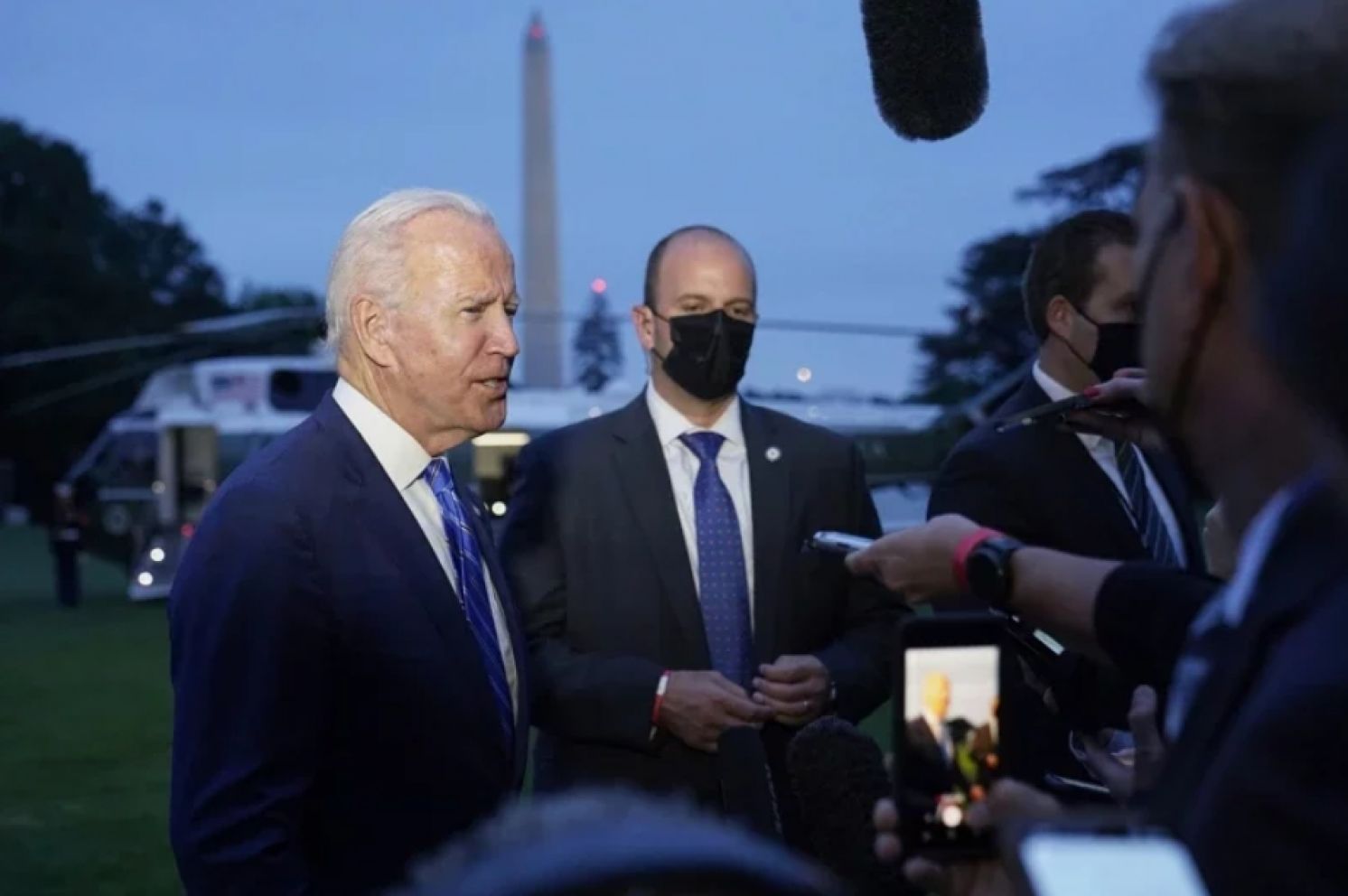
Is Biden's Taiwan Agreement Empty Talk?
By Wang Kao-cheng
United Daily News, October 9, 2021
In answering the media question about Taiwan, President Joe Biden of the United States brought up the so-called “Taiwan agreement”. Mr. Biden said that he has spoken with Chinese President Xi Jinping about Taiwan, and they agree to abide by the Taiwan agreement. "We made it clear that I don't think he should be doing anything other than abiding by the agreement." Since its content is unknown to the outside world, “the Taiwan agreement” fueled wide speculation.
Facing with repeated questioning, the White House finally came up with a formal response. White House press secretary Jen Psaki clarified during a White House press briefing that Mr. Biden had spoken with Mr. Xi previously and told Mr. Xi that the United States will handle its relations with Taiwan in accordance with the Taiwan Relations Act (TRA) and abide by the TRA. It is finally clear what Biden meant with the Taiwan agreement is the Taiwan Relations Act.
From the above wording incident a few meaningful points can be drawn regarding the U.S.-China-Taiwan relations. First, when Mr. Biden and Mr. Xi spoke on the phone last time, Taiwan was an issue neither of the two leaders could avoid. The Beijing authorities always emphasize that the Taiwan question is the core issue between China and the U.S. relations. The Chinese side always brings up the Taiwan question in every U.S.-China summit meeting without exception. Especially in the past six months the tensions across the Taiwan Strait were mounting as swarms of Chinese military aircraft repeatedly circling Taiwan, the two leaders were bound to discuss the Taiwan issue whenever they talked.
Secondly, Mr. Biden is apparently not familiar with the Taiwan issue since he has talked about the Taiwan agreement twice not knowing there was no such agreement. The only agreements reached through negotiation between the United States and China on Taiwan are the Three Joint Communiques. They are not and no one calls them the Taiwan agreement. Although the White House has clarified that the Taiwan agreement in Mr. Biden’s words is the TRA. Yet the TRA is U.S. domestic law and not a product of bilateral negotiation and has never been accepted by Beijing, how can it be an agreement between the United States and China? With Biden’s casual choice of words and insufficient knowledge about the U.S.-China-Taiwan relationship, it is scary for Taiwan to place its security in the hands of such a United States president.
Third, if the Taiwan agreement just means the TRA, then it can only constrain American behavior, not the Chinese. What Biden said “we made it clear that I don't think Xi should be doing anything other than abiding by the agreement” has no legal basis and cannot expect China to follow. If Mr. Biden raised concern over the mainland Chinese military threat to Taiwan over the phone with Mr. Xi and asked him to exercise restraint, Mr. Xi would not have agreed to it. If that’s the case, then what Biden said to the media was just empty talk. Taiwan and the rest of the world need not take it too seriously. No wonder China has dispatched more and more aircraft to pressure Taiwan after Mr. Biden called Mr. Xi.
Fourth, the real agreements between the U.S. and China are the Three Joint Communiques, in which the United States agrees to the “One China” policy and that Taiwan is a part of China. Beijing promised to solve the Taiwan question in peaceful means whereas the United States agrees to a gradual reduction of arms sale to Taiwan both in quantity and quality. As for the recent growing tensions in the Taiwan Strait, Beijing says it is because the ruling Democratic Progressive Party (DPP) in Taiwan abandons the 1992 Consensus and Washington waters down the One-China policy; as a result, Beijing needs to step up its military threat to Taiwan. If the Biden administration wants to reduce the tensions in the Taiwan Strait, it is not enough to mention the TRA alone, it also needs to go back to the original intent of the Three Joint Communiques. Otherwise, it won’t make any difference to have more dialogue between the two leaders.
The last phone call between Mr. Biden and Mr. Xi touched upon the Taiwan issue. It is evident that the U.S. statement was not satisfactory to the Chinese side so Xi refused to meet with Mr. Biden in the coming Group of 20 summit. However, it seems that Biden really wants this meeting to happen because the current domestic economic development in the United States requires de-escalation of foreign confrontation. As the National Security Advisor Jake Sullivan’s recent meeting with Chinese official Yang Jiechi in Switzerland, Taiwan needs to pay closer attention if it means a shift of the U.S. China policy.
The author is professor at the Graduate Institute for International Affairs and Strategic Studies, Tamkang University.